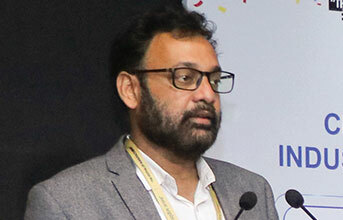
Rony Banerjee, Advisor World Association for Small and Medium enterprises (WASME); Mentor, Startup Innovation and Incubation Centre, IIT Kanpur & Advisor EY
Amidst the rapid development of India's startup ecosystem and the significant expansion of the Micro, Small, and Medium Enterprises (MSMEs), the traditional Khadi sector stands at a crossroads of opportunity and challenge. While Khadi offers unique possibilities for fostering sustainable and inclusive growth, it faces substantial hurdles that need to be addressed to effectively merge with the modern manufacturing framework.
India's MSMEs in the manufacturing sector are positioned at a critical juncture, poised to catalyse substantial economic growth and foster innovation. With the emergence of a dynamic startup ecosystem, a new horizon of opportunities is unfolding, which could redefine manufacturing practices to be more efficient, sustainable, and globally competitive.
The interaction between MSMEs and startups heralds a vibrant period for the manufacturing sector, promising to infuse it with cutting-edge technologies and innovative methodologies. Khadi, a symbol of India's artisanal heritage and self-reliance, possesses untapped potential to significantly impact the MSME manufacturing sector, a critical pillar of India's economy. As the country propels forward with its 'Make in India' initiative, incorporating Khadi could provide a unique blend of traditional craftsmanship and modern entrepreneurial spirit, thereby fostering innovation and sustainability in manufacturing.
Advancements in textile engineering can be integrated into Khadi manufacturing to enhance fabric quality, diversify product ranges, and reduce costs. Startups can collaborate with research institutions to pioneer technologies that refine the spinning, weaving, and dyeing processes. Leveraging startup agility, the sector can expand beyond apparel and home furnishings to include industrial applications. This diversification can open new markets and increase the sector's resilience.
Harnessing the transformative power of blockchain technology presents a revolutionary opportunity to redefine the traceability of Khadi products, anchoring authenticity and amplifying consumer confidence. By forging strategic partnerships with startups specialising in blockchain, Khadi producers can establish impeccably transparent supply chains, positioning Khadi at the forefront of technological innovation in the textile industry. In the realm of operational enhancement, the adoption of lean manufacturing techniques represents a futuristic stride toward optimising efficiency within Khadi units. These methodologies, borrowed from advanced sectors of large-scale manufacturing, hold the potential to drastically reduce waste and escalate productivity. Collaboration with major corporations to deliver targeted training programs and workshops can catalyse this transfer of sophisticated knowledge, ensuring that Khadi units are equipped to thrive in an increasingly competitive and efficiency-driven global market.
Large-scale manufacturers have a unique opportunity to leverage the strengths of the traditional Indian Khadi sector to foster innovation, enhance sustainability, and expand market reach. By integrating advancements in textile engineering into Khadi manufacturing, these manufacturers can not only enhance the quality and diversity of Khadi fabrics but also significantly reduce production costs. By embracing these synergies, large-scale manufacturers can play a crucial role in transforming the traditional Khadi sector into a modern, innovative, and sustainable industry while paving the way for a new era of manufacturing excellence in the global textile industry.
Digital platforms offer expansive outreach for Khadi products. Collaborations with tech startups can help leverage artificial intelligence and data analytics to target potential markets and craft effective marketing campaigns. Partnerships with established brands in the textile and fashion industries can help position Khadi as a premium sustainable brand on global platforms, enhancing export potential. On a different note, large corporations can fulfill their CSR objectives by supporting Khadi MSMEs through direct investments, infrastructure support, or marketing partnerships.
Facilitating access to new forms of finance, such as angel investment for Khadi-based startups, can alleviate financial constraints typically faced by artisans and small producers. Joint efforts in policy advocacy by startups and large industries can help shape favourable policies that promote Khadi, such as tax benefits, export incentives, and subsidies for sustainable practices.
Integrating the traditional Khadi sector into India's dynamic MSME and startup ecosystems represents a profound convergence of challenges and opportunities. By proactively tackling these challenges and effectively capitalising on synergistic opportunities, Khadi can be reinvigorated as a cornerstone of India's sustainable manufacturing landscape. This transformation is not merely about upgrading old practices but about reshaping perceptions, modernising production, and opening new markets through strategic partnerships and innovative approaches. As Khadi aligns with modern industrial standards and practices, it promises not only to revive a heritage-rich industry but also to drive broader socio-economic advancements. By doing so, Khadi is poised to become a beacon of sustainable development in the global textile arena, illustrating how traditional sectors can successfully transition into thriving, contemporary industries.


























